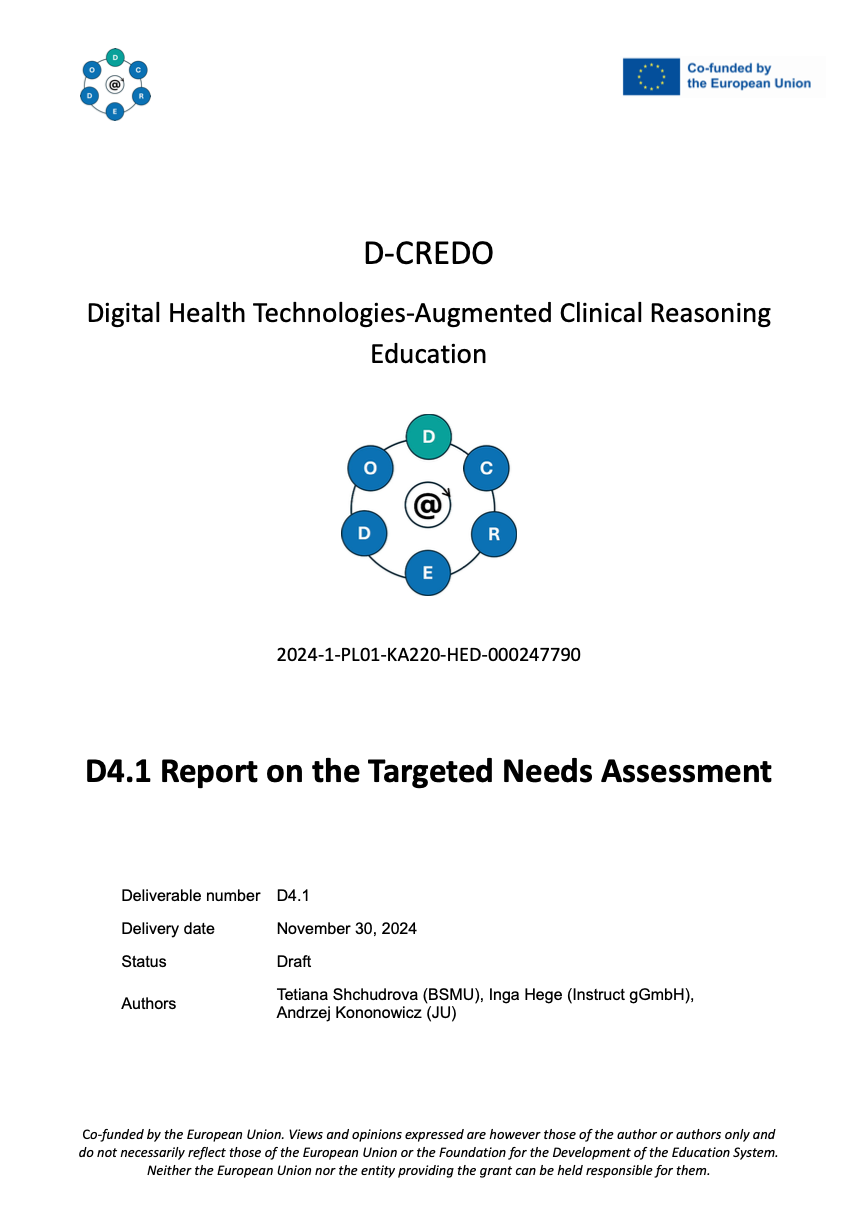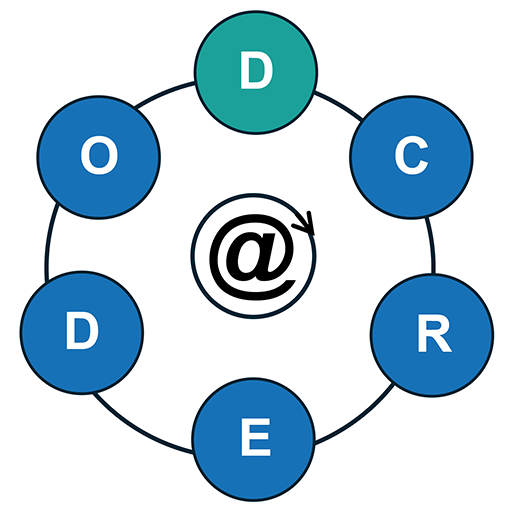We are pleased to announce the completion of another deliverable of the D-CREDO project: the report on the Targeted Needs Assessment for using digital health tools in clinical reasoning education. The aim of this deliverable was to gain detailed knowledge of the specific needs of stakeholders (students, faculty, managers, practitioners, nurses, etc.) in partner institutions and among associated partners regarding clinical reasoning education enhanced with digital health technologies and tools.

With the survey, interviews and workshop participants from eight different countries, we were able to gather and consider a variety of perspectives that will inform the next steps of the D-CREDO project – the blueprint of the learning units and virtual patients in WP3.
The results confirm the relevance of the digital health tools we selected for our project: artificial intelligence (AI) in image analysis, large language models (LLM) and big data, mHealth apps and wearables, electronic health records (EHR) with clinical decision support systems (CDSS), and telehealth in clinical reasoning. The low level of competence in using and teaching with digital tools among faculty and students indicates a clear need for educational materials and learning units on the use of digital health tools for clinical reasoning, as well as train-the-trainer courses. The findings of the targeted needs assessment support the purpose and approach of the D-CREDO project and provide important insight into how to structure the learning units and incorporate virtual patients as a training tool and assessment method for clinical reasoning. The report is accessible on the project results page or here.
Follow us on LinkedIn and stay tuned for updates on our progress and for opportunities to engage with D-CREDO through events and publications!





